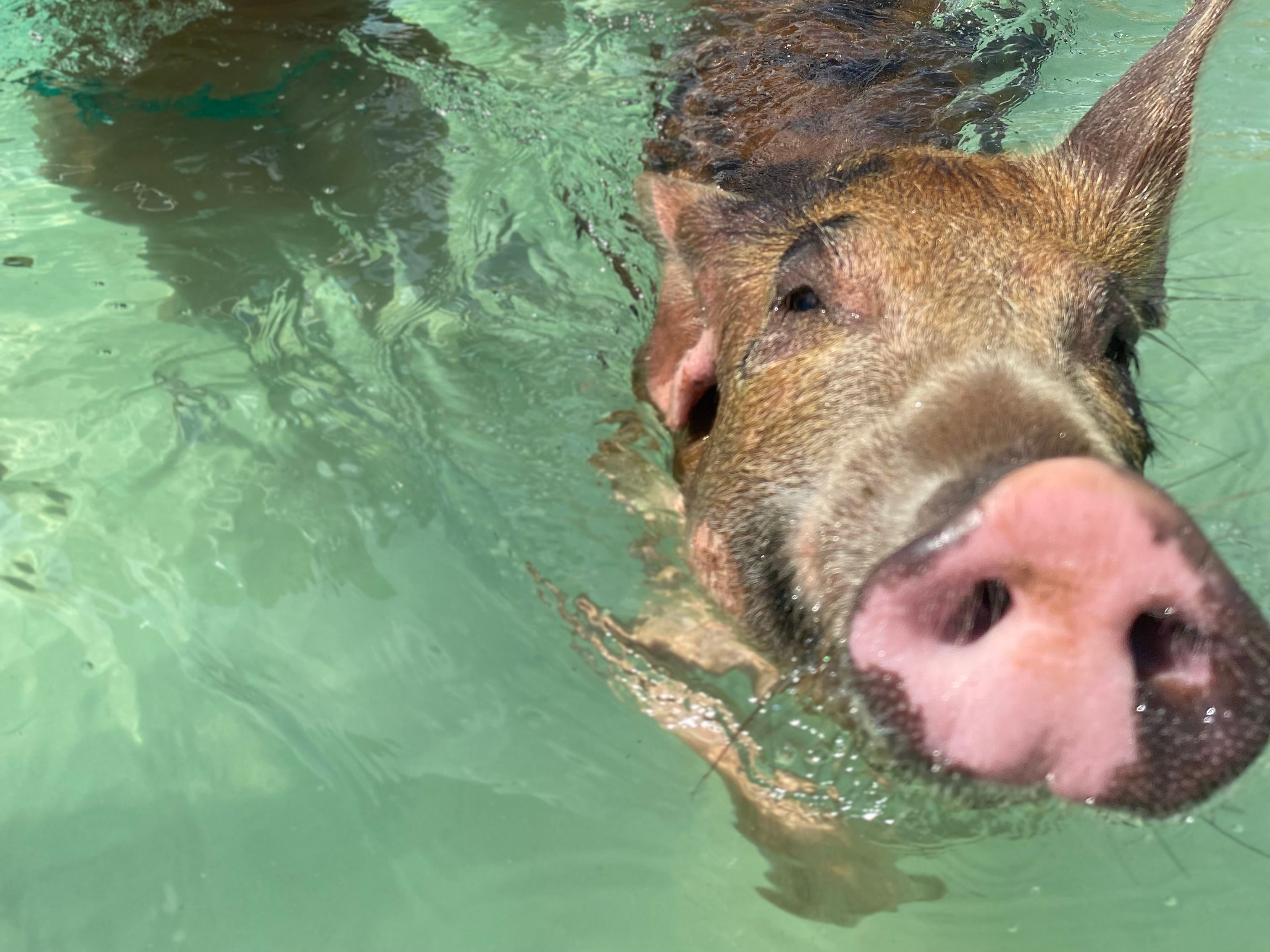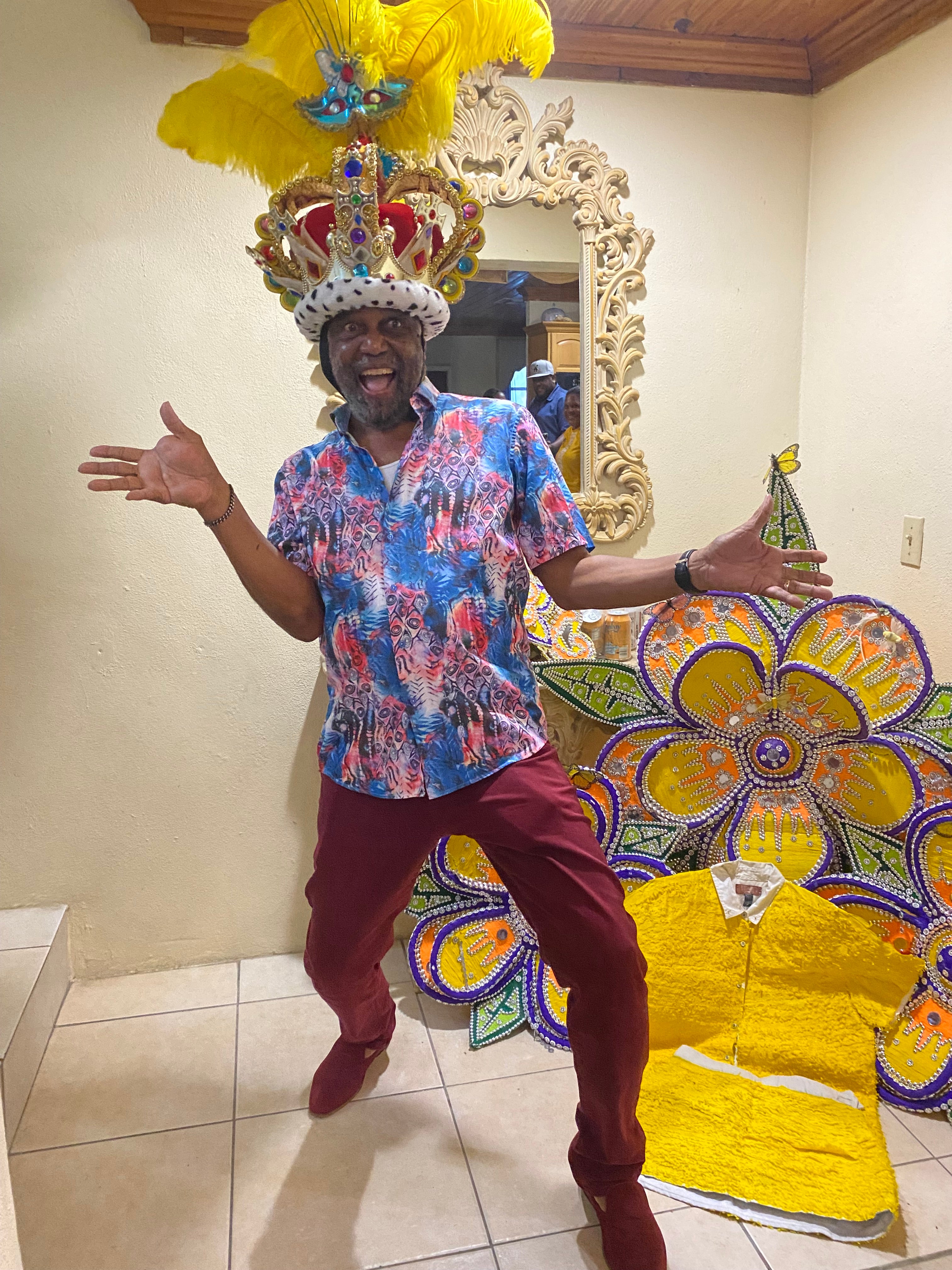In the sparkling turquoise sea of a small paradise cay, a pink and brown snout emerges. Twitching, it is following the scent of carrots held out nervously by my fellow intrepid explorers, stood waist-deep in the balmy clear waters of the Exuma archipelago.
The large brown spotted pig ‘swims’ towards us, powered by his hooves, his head held just above the water. I wince and wait to be bitten, but he gently snuffles up the vegetable from my hand, paddles off to shore and gobbles it down. A couple of the group quickly leave on account of the floating pig poos, but I surmise we’re in salt water. It’ll be fine.
Swimming pigs (yes, that is correct) are not native to the Bahamas at all and are thought to have been left on a neighbouring Exuma cay (known as Pig Island) by sailors – presumably to go back and eat them. Or maybe a farmer just gave up. No-one is quite sure. They have now ‘moved in’, populate several cays (islands) and have become something of a national treasure.

But it should come as no surprise that kind-hearted Bahamians have welcomed these relative newcomers.
Here are six more ways to get to the heart and soul of this island nation.
Read more on Caribbean travel:
Getting to know the locals
An air-traffic controller by day, who also owns a chartered boating business for tourists, Kwame Russell is a people-to-people scheme ambassador. This programme matches curious visitors with volunteer locals according to their occupation, hobbies and passions. The idea is for tourists to have a fully immersive cultural experience, themed around culinary, natural or historical interests.
A typical activity is to dine with an ambassador and their friends, and during my visit, I am treated to Bahamian classics of conch (sea snail) fritters, potato salad, peas and rice (not rice and peas) and macaroni cheese.
Elaborate Junkanoo costumes and headdresses are proudly displayed. Fellow guest Percy ‘Vola’ Francis, the ‘King of Junkanoo’, explains how this annual Boxing Day and New Year’s Day street carnival originated from slaves, who were given three days off at Christmas and would go house-to-house singing and dancing with colourful masks.
Learning about Junkanoo

It becomes clear Junkanoo is at…
Click Here to Read the Full Original Article at The Independent Travel…
